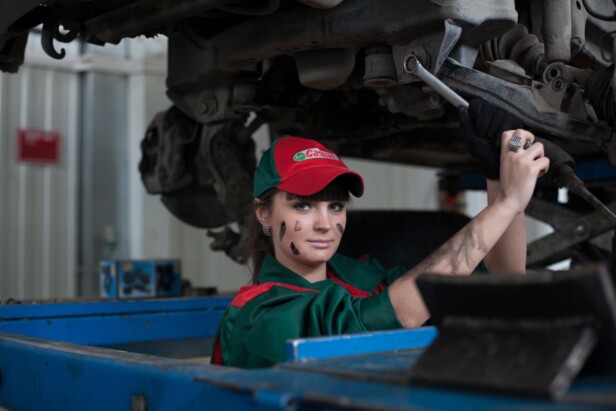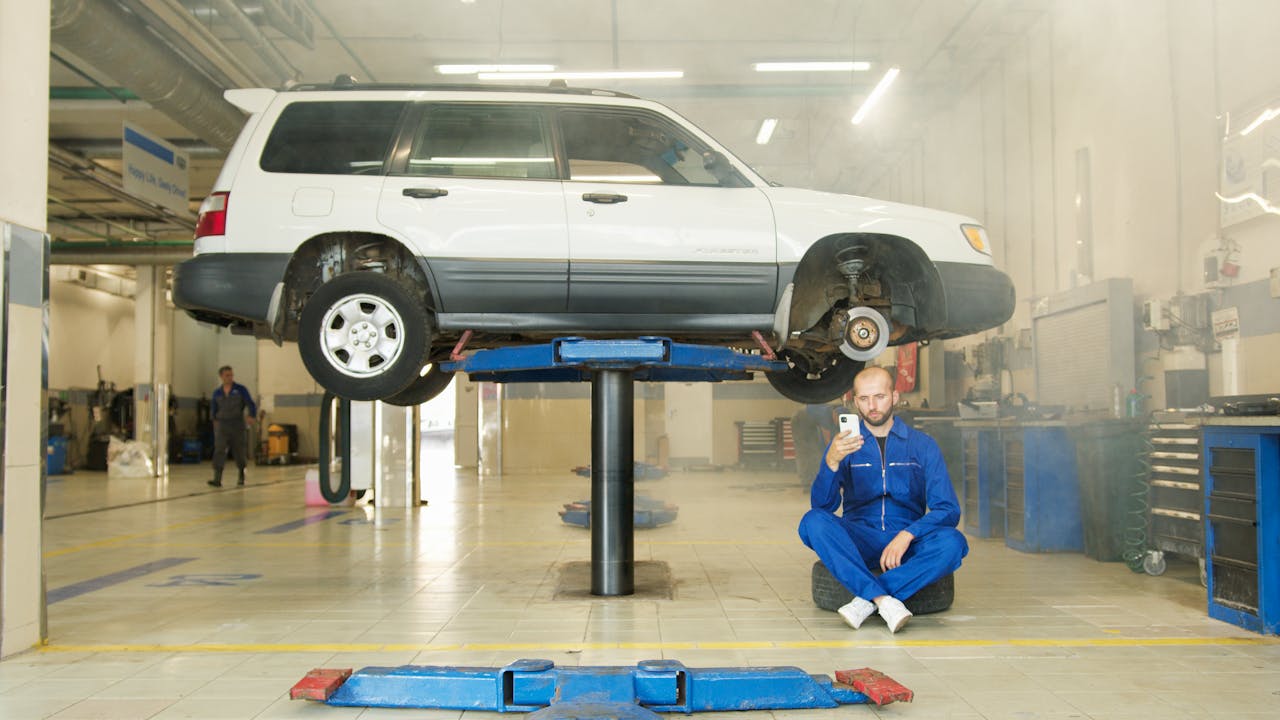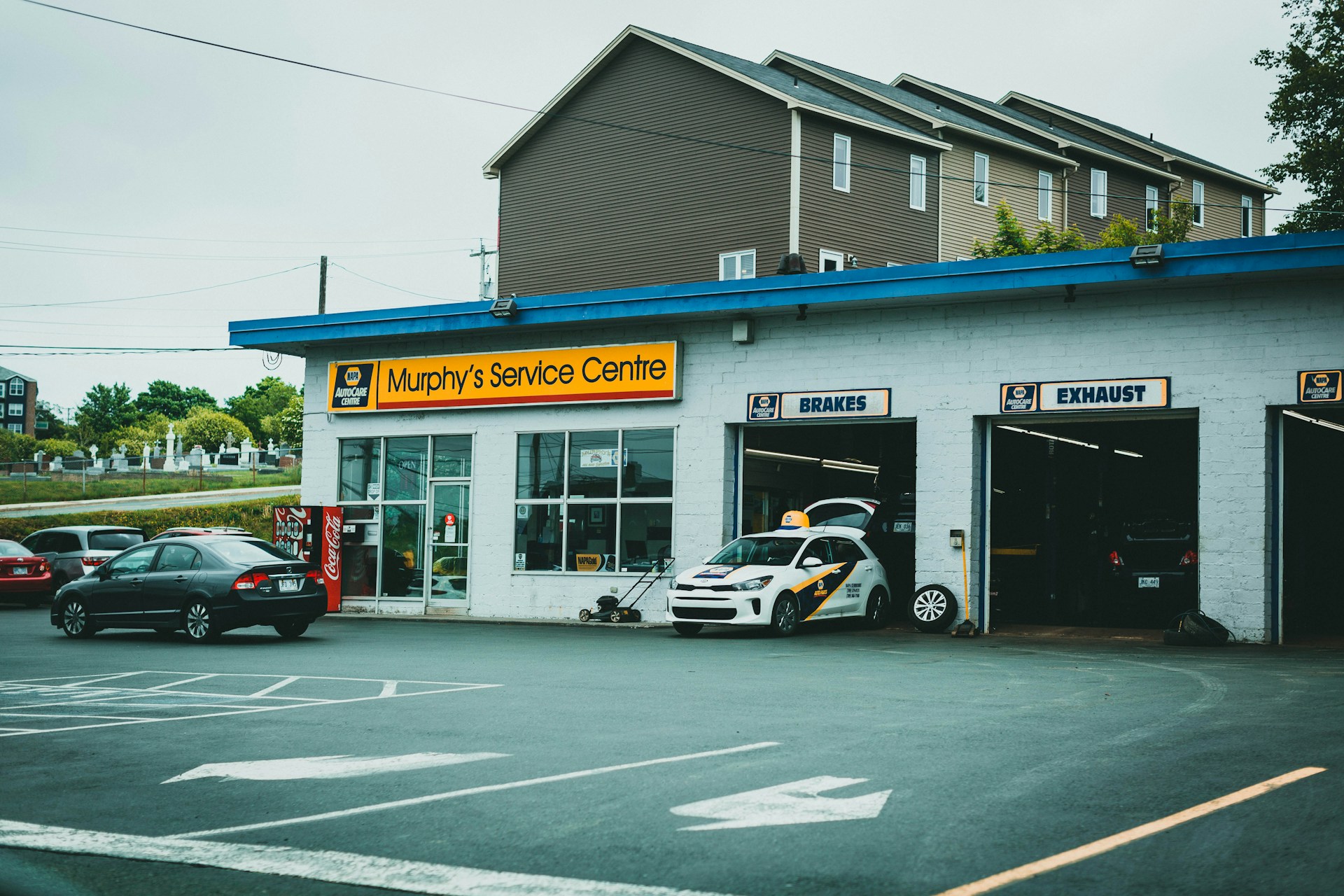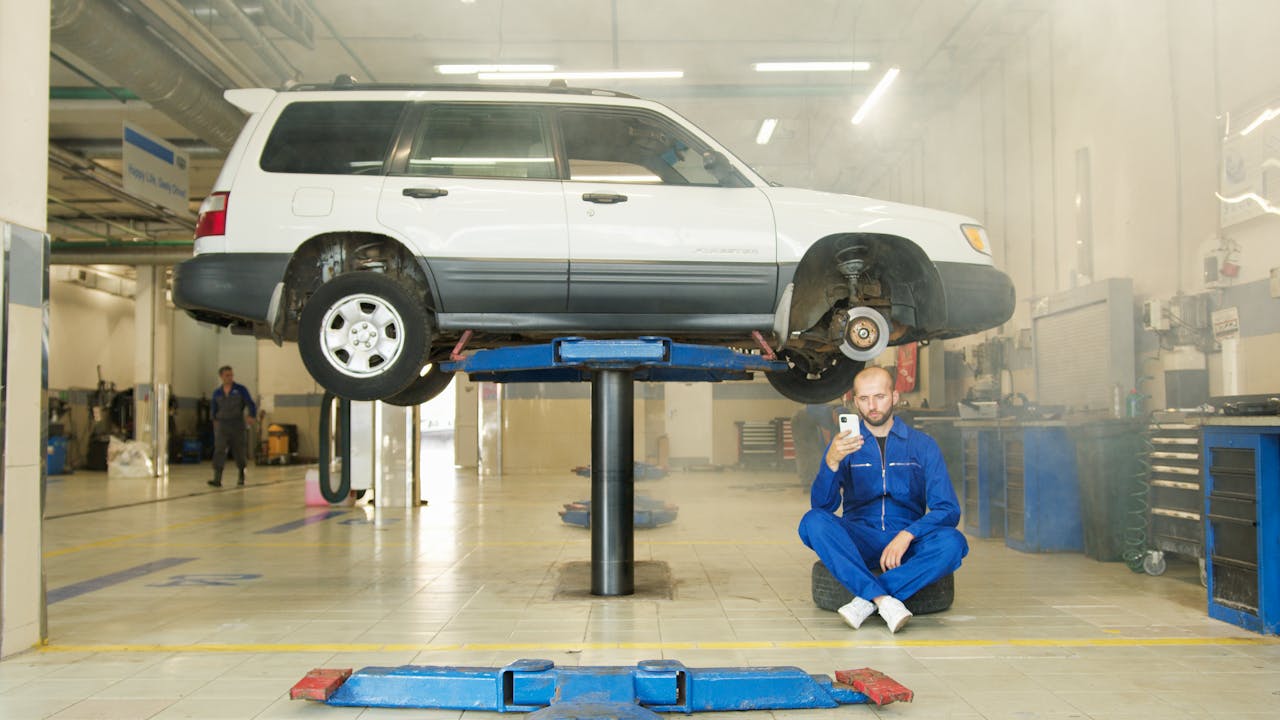Auto shop construction projects fail when owners discover budget overruns, permit delays, and schedule conflicts three months into construction. In Fort Worth’s competitive commercial market, successful projects require alignment between scope, cost, delivery method, and local approvals before breaking ground.
Managing an auto shop construction project Fort Worth involves navigating Dallas-Fort Worth’s unique construction landscape where costs and timelines shift based on building complexity, labor availability, and material volatility. Smart developers and property owners recognize that collaborative delivery methods like construction manager at risk can provide cost certainty and schedule insights during the design phase, while Tarrant County’s published standards and project resources help teams maintain alignment with local expectations throughout the process.
How Can A CMAR Delivery Approach Reduce Risk For A Fort Worth Auto Shop?
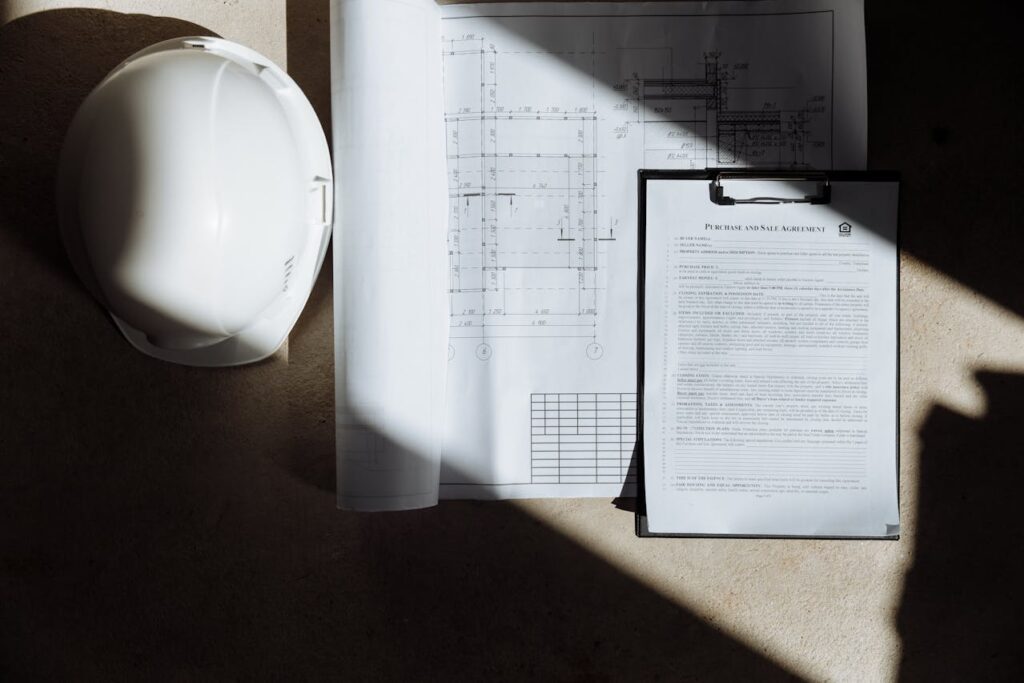
Construction manager at risk (CMAR) shifts financial responsibility from owner to construction manager through a guaranteed maximum price. This delivery method brings us into your project during design, not just construction. We work as your consultant while the architect develops plans, then transition to general contractor when building starts.
The guaranteed maximum price represents the most you will pay for construction, barring scope changes. If our costs exceed this figure, we absorb the difference. This arrangement transfers budget uncertainty from your project to our balance sheet. Cost estimating becomes more precise because we review designs as they develop rather than bidding on completed plans.
Early Design Input And Trade Partner Selection
We evaluate constructability during design development rather than discovering issues in the field. This early design input helps identify potential conflicts between building systems before they become expensive change orders. Trade partner selection happens through our established network, not just lowest-bid procurement.
Our scheduling expertise helps coordinate specialty trades like automotive lift installation with structural work. This prevents delays that occur when trades work in isolation. We also provide input on material selection that affects both cost and schedule, particularly for specialized automotive equipment.
Value Engineering And Risk Mitigation
Value engineering examines each building system to optimize cost without compromising function. We might suggest alternative foundation designs for heavy equipment or modified HVAC layouts that reduce ductwork. These analyses happen while changes are still manageable, not during construction.
Risk mitigation focuses on identifying challenges before they affect the schedule. Weather delays, material shortages, and permit complications get addressed through contingency planning. We also conduct life-cycle cost analysis to balance initial construction costs with long-term operating expenses, particularly important for energy-intensive automotive operations.
This proactive approach reduces the surprises that typically drive cost overruns. Rather than discovering problems during construction, we solve them during design when solutions cost less and cause fewer delays.
What Budget Ranges And Cost Drivers Should You Plan For In DFW?
Commercial building costs in Texas typically range from $200–$400 per square foot, with Dallas–Fort Worth single‑story commercial structures falling within $310–$450 per square foot. Auto shop construction sits in the middle of this range due to specialized bay configurations, equipment requirements, and automotive service needs.
Understanding cost drivers helps owners build realistic budgets and avoid surprises during construction. Labor represents the largest variable, accounting for 18–35% of total project costs depending on trade complexity and scheduling.
Hard Costs Drive The Majority Of Your Budget
Materials form 17.5–25% of construction costs, though automotive facilities often require specialized flooring systems, drainage, and ventilation that can push material costs toward the higher end. Foundation work typically consumes 11.5% of the budget, covering excavation, concrete work, and site preparation specific to automotive operations.
Major building systems including HVAC, plumbing, and electrical account for approximately 12.5% of costs. Auto shops demand robust electrical systems for lifts and diagnostic equipment, plus specialized ventilation to manage fumes and maintain air quality standards.
| Cost Category | Percentage/Cost Range |
|---|---|
| Labor | 18–35% of total project costs |
| Materials | 17.5–25% of construction costs |
| Foundation Work | 11.5% of the budget |
| Major Building Systems (HVAC, Plumbing, Electrical) | 12.5% of costs |
| Soft Costs | 10–15% of the total budget |
| Permitting and Regulatory Fees | 0.5–2.5% of the total budget |
| Landscaping | 6.5% approximately |
| Contingency | 5–10% for market conditions |
Soft Costs And Administrative Expenses
Soft costs including design fees, permits, and project management typically run 10–15% of the total budget. These cover architectural services, engineering consultations, and construction management throughout the project timeline.
Permitting and regulatory fees represent a smaller portion at 0.5–2.5% but vary by jurisdiction within the DFW region. Landscaping requirements add approximately 6.5% to accommodate parking areas, drainage management, and aesthetic standards for commercial automotive facilities.
Contingency Planning For Market Conditions
We recommend including a 5–10% contingency to address weather delays and supply chain disruptions that have affected Texas construction since 2021. This buffer protects against material cost volatility and unexpected site conditions during excavation or utility connections.
Early value engineering helps optimize costs by reviewing finishes, systems, and scope during design development. This collaborative approach identifies opportunities to meet functional requirements while staying within budget parameters, particularly for specialty automotive equipment integration and workflow optimization.
How Do Fort Worth Permitting And Local Coordination Affect Schedule And Scope?
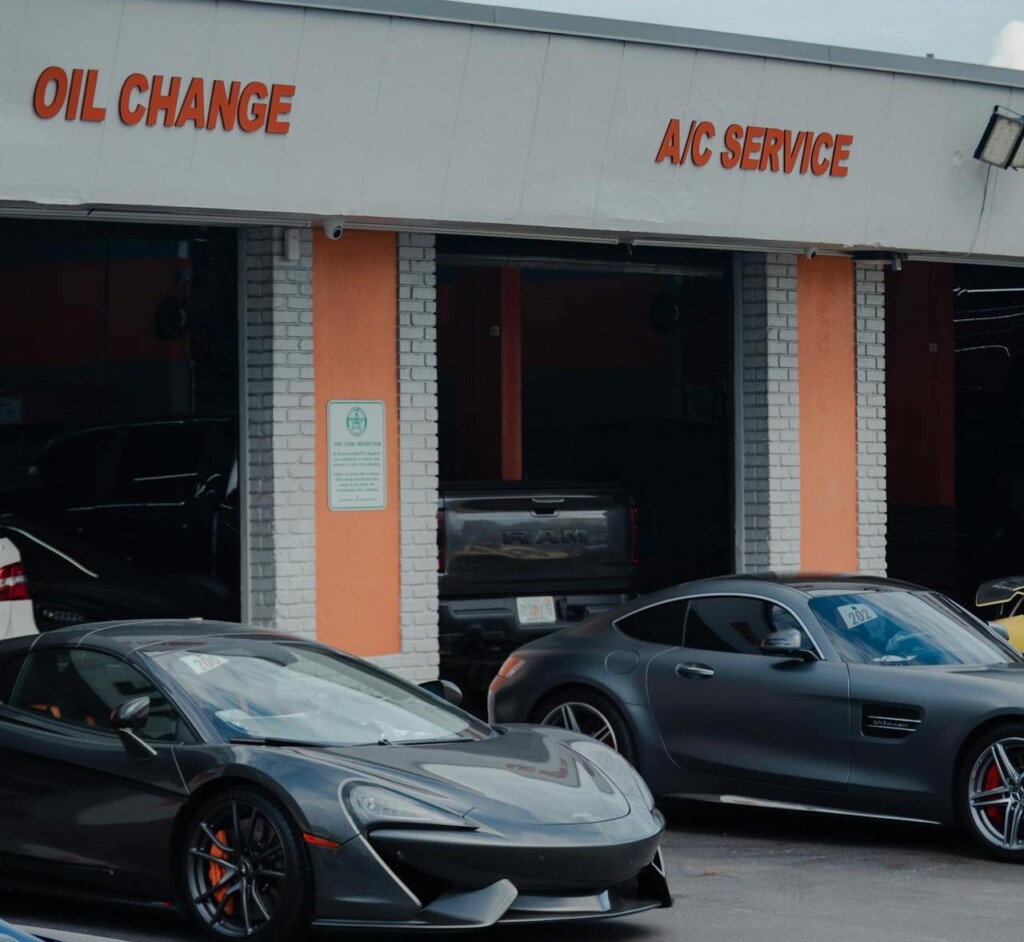
While permitting and regulatory fees represent just 0.5–2.5% of your project budget, their influence on schedule extends far beyond their cost impact. Fort Worth permitting processes directly affect project timelines through review periods, inspection requirements, and coordination with multiple agencies. Understanding these dynamics helps we plan construction schedules that accommodate regulatory requirements without creating unnecessary delays.
Regional variations in permitting efficiency create meaningful differences across Dallas–Fort Worth. Data shows Dallas fees run higher than Fort Worth for certain permits, with this cost differential extending to commercial work. Fort Worth’s permitting review time averages eight days for commercial projects, while comparable Dallas permits often require significantly longer processing periods. These differences become more pronounced during peak construction seasons when permit volume increases.
Understanding Tarrant County Resources And Expectations
Local public agencies in Tarrant County provide valuable resources that help align project expectations with regulatory requirements. The county publishes a Facilities Standards Manual and shares capital project information that illustrates standard processes and expectations. These resources guide design coordination efforts and help predict potential approval challenges before they affect construction schedules.
For specialized auto service facilities, including quick-lube configurations, regional coordination becomes particularly important. Nearby cities publish detailed permit requirements that highlight specific steps for automotive service buildings. These requirements often involve specialized drainage, environmental compliance, and safety considerations that standard commercial permits might not address. Early review of these requirements prevents scope changes during the approval process.
Integrating Entitlement Acquisition With Design Development
We provide entitlement acquisition services that coordinate closely with site feasibility analysis and environmental assessments. This integrated approach ensures that zoning approvals, environmental clearances, and design development proceed in parallel rather than sequentially. Early coordination between these processes prevents situations where design changes require permit revisions.
Our site feasibility services examine potential regulatory challenges before design begins. This analysis covers drainage requirements, setback restrictions, parking ratios, and environmental considerations specific to automotive facilities. Identifying these factors early allows design teams to incorporate solutions rather than retrofit them after approvals begin.
Environmental services coordination becomes critical for auto service facilities due to potential soil contamination concerns, stormwater management requirements, and waste handling protocols. We coordinate environmental assessments with permit applications to ensure all regulatory requirements are addressed comprehensively. This coordination prevents delays that occur when environmental issues surface during the permit review process.
Collaborative design management keeps approvals and design aligned throughout the development process. We maintain regular communication with Fort Worth Development Services Department and relevant Tarrant County agencies to track regulation changes that might affect project scope. This ongoing coordination helps anticipate approval requirements and adjust design elements before formal permit submission.
What Labor And Materials Dynamics Should You Expect In Dallas–Fort Worth?
Dallas–Fort Worth offers distinct advantages for auto shop construction projects through its strategic geographic position and established construction infrastructure. The metroplex’s centralized distribution networks and robust contractor base create more predictable project conditions compared to many other Texas markets.
Our experience managing projects across the region confirms research showing approximately 5–7% efficiency gains on comparable work versus coastal markets. This advantage stems from DFW’s inland location, which shields projects from weather premiums and transportation delays that affect Houston or other coastal areas.
Labor Market Strengths And Challenges
Labor availability in Dallas–Fort Worth remains broader than many Texas metropolitan areas. The region benefits from a larger overall labor pool, though continuing growth creates competitive conditions for skilled trades.
We coordinate with subcontractors who understand that while labor demand stays high, the market hasn’t reached the critical shortage levels seen in Austin or other rapidly expanding metros. Trade partners report manageable booking schedules, though specialized automotive service work may require longer lead times during peak construction seasons.
The centralized distribution advantages extend to workforce mobility. Contractors can more easily move crews between DFW projects without the travel penalties common in other Texas regions.
Material Volatility And Supply Chain Planning
Materials across Texas have experienced significant volatility since 2021, and Dallas–Fort Worth projects face these same challenges. We track fluctuations in key materials like steel, lumber, and specialty automotive equipment that affect project budgets and schedules.
The metroplex’s central location provides some insulation from supply chain disruptions compared to more remote markets. Multiple distribution centers serve the region, creating redundancy when single suppliers face delays or shortages.
Procurement planning becomes critical under these conditions. We work with trade partners to identify long-lead items early and coordinate purchasing decisions with design milestones to lock in pricing and delivery schedules before market swings affect availability.
Equipment Scheduling Across Regions
Equipment rental rates vary significantly across Texas markets, with Austin commanding premium pricing and Houston facing availability constraints during busy periods. Dallas–Fort Worth’s position allows us to coordinate equipment scheduling across regions when project timelines permit.
This regional coordination helps manage rental costs for specialized equipment like automotive lifts or environmental systems that may have limited local availability. Our teams leverage relationships with equipment suppliers who serve multiple Texas markets to optimize both cost and scheduling.
Weather Planning And Contingency Management
Texas weather patterns create predictable but significant risks for construction schedules. We recommend including a 5–10% contingency allocation to handle weather delays and supply chain disruptions without derailing project timelines.
This contingency planning covers both direct weather impacts and secondary effects like material delivery delays during severe weather events. Dallas–Fort Worth’s inland position reduces some coastal weather risks while maintaining exposure to typical Texas storms and temperature extremes that can affect construction productivity.
Conclusion And Next Steps For Fort Worth Auto Shop Projects

A successful Fort Worth auto shop construction project requires strategic decisions made during preconstruction. CMAR delivery provides the cost certainty and collaborative design input needed to navigate DFW’s competitive market conditions. With construction costs ranging from $310–$450 per square foot for single-story commercial buildings in the region, precise budget alignment becomes essential for project viability.
Build your project foundation on detailed cost estimates that account for labor, materials, MEP systems, and regulatory requirements. Plan procurement early to manage material volatility, and maintain that 5–10% contingency to handle weather delays and supply chain disruptions. The preconstruction phase offers the best opportunity to align scope, approvals, and schedule before breaking ground, ensuring your auto shop project delivers on time and within budget.
Ready to move forward with your Fort Worth auto shop construction project? Contact EB3 Construction to discuss CMAR delivery and preconstruction planning for your development.

